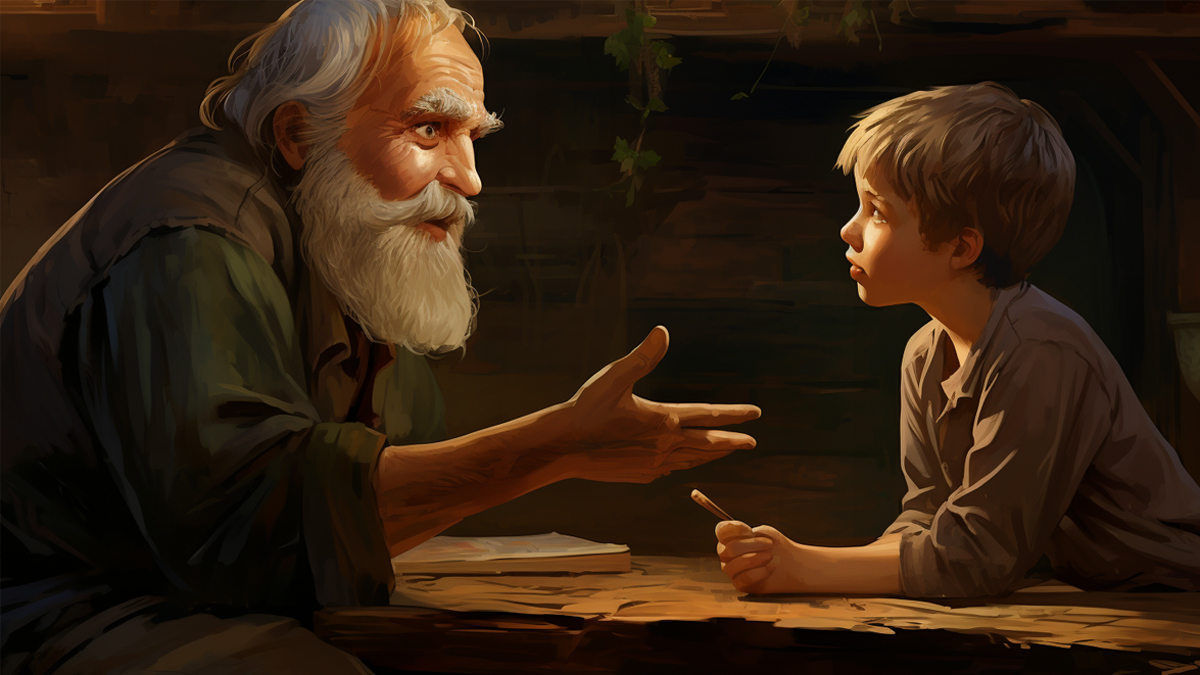Gates calls scientific literacy one of our biggest challenges.
Gates: Sure. This question of scientific literacy in the United States is in fact one of our greatest challenges. What we scientists would want people to understand is A, our science is not a challenge to their religion because that’s a tension that we can see rising in our society. You will remember earlier I talked about the fact that we build theories, we don’t build truths. As I understand religions, they are about truths. That’s a different thing. And in fact it’s that wall that actually protects religion from science and vice-versa, the fact that they’re really about very different things. Stephen Jay Gould used to call them non-overlapping magisteria and I think that’s about right. Even Galileo makes this comment about the different spheres in which these two activities reside. So I think that’s of great importance to us because we know from looking at several thousand years of history that when religion and science clash, science generally loses. For example, over two thousand years ago there were two philosophers named Artisophanes and Aristarchus, who figured out that the earth was round. This belief was in conflict with beliefs about the Olympian gods and so this scientific fact was lost until it was rediscovered with Copernicus about 18 hundred years later. So the religion there wasn’t one of our modern religions, but it was a religion. And there are other examples. The first person who had the idea that there might be life on another planet was a priest by the name of Giordano Bruno. He paid in part for this with his life. So science loses when a society sees science in conflict with religion. We could do other examples. So that’s one thing. The other thing that we would want people to know about is that science is a process by which we are trying to decrease our ignorance. We want to know more about the universe. We want to know it more accurately. And the ultimate purpose of this knowing is to increase the storehouse of human knowledge which is ultimately to be used to increase the quality of human life. I think most of us who do science would not do this if someone said, “You can learn all these things, but at the end of the day, it’s not for increasing everyone’s quality of life.” So I would personally want a scientifically literate citizen to understand that scientists are people that are really working on behalf of not perhaps you, but that would be nice, but maybe it’s your children or your grandchildren or your great-great grandchildren or your great-great-great-great-great-great-great-great-great-great grandchildren, that in fact it’s a commitment to humanity. And then I guess the final thing that I’d like for the scientifically literate citizen to do is to be a lifelong learner, to not disengage because most people disengage from science after they leave university because it’s not relevant to their life. They’re doing something else, making money, making a life. But we’re now moving into a period in the history of our nation where, for example, we have genomic science. I like to challenge people and say, “Look. Suppose you could have a daughter that played tennis like Venus Williams and looked like Kournikova and played golf like Tiger Woods. Would you choose not to give her that opportunity?” Well, with genomic science, that may not become a theoretical question, and so we’re gonna have to make clever choices as a society about the way we apply science, genomic science, nanoscience. You know, I walk around normally hooked up to a cell phone. I see right now you have these plugs in your ears listening. A lot of us are really plugged in. Well, imagine that you had a genomic device, rather a nanoscale device that you could surgically implant in your brain that would allow you to directly access the web. Would you make that decision? Well, you might think that would be really convenient until you remember there are hackers out there. Do you want people hacking in your brain? So there are really some great challenges. Science is really putting us into the position of redefining what it means to be human. But if that’s going on, we had better have as broad a discussion as possible in our society about what it is that we want. This will not happen if the general public disengages from science.





